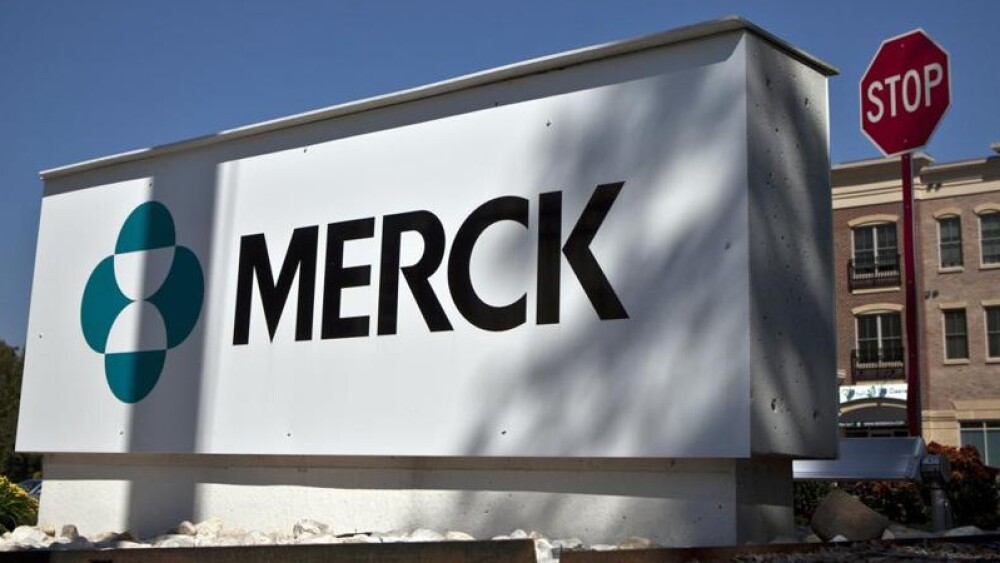February 15, 2017
By Alex Keown, BioSpace.com Breaking News Staff
KENILWORTH, N.J. – Another experimental amyloid-targeting Alzheimer’s treatment has failed. On Tuesday, Merck & Co. pulled the plug on its Phase II/III study of verubecestat for use in patients with mild-to-moderate Alzheimer’s disease.
Merck said it stopped the study after an external data monitoring committee determined there was “virtually no chance of finding a positive clinical effect.” Merck’s cessation of the Epoch study comes about three months after Eli Lilly pulled the plug on its Phase III study of the anti-amyloid drug, solanezumab after it failed to meet trial endpoints.
Merck said the primary efficacy goals of the Phase II/III study was the change from baseline in the Alzheimer’s Disease Assessment Scale Cognitive Subscale (ADAS-Cog) score, as well as the change from baseline in the Alzheimer’s Disease Cooperative Study—Activities of Daily Living (ADCS-ADL) score, following 78 weeks of treatment.
Shares of Merck dropped about 2 percent in overnight trading from Tuesday’s close of $65.66 to $64.
While Merck is stopping the Phase II/III study, also dubbed 017, the company said it was continuing with protocol 019, also known as APECS, which is evaluating verubecestat in people with prodromal Alzheimer’s disease. Results from the APECS study are expected in February 2019. Patients with mild to moderate AD exhibit detectable and worsening impairment of cognitive and functional abilities. Patients with prodromal AD have objective memory problems but relatively normal functioning in activities of daily living, Merck said.
“Alzheimer’s disease is one of the most pressing and daunting medical issues of our time, with inherent, substantial challenges to developing an effective disease-modifying therapy for people with mild-to-moderate disease. Studies such as EPOCH are critical, and we are indebted to the patients in this study and their caregivers,” Roger Perlmutter, president of Merck Research Laboratories , said in a statement. “While we are disappointed that a benefit was not observed in this study, our work continues with APECS, which is studying verubecestat in people with less advanced disease.”
Verubecestat is in a class of drugs known as BACE inhibitors. Some researchers believe that this type of drug should be used in the earliest stages of Alzheimer’s disease. By the time the amyloid plaque builds up in the brain of Alzheimer’s patients, it may be too late for these drugs to be effective. That’s the thought of James Hendrix, director of global science initiatives at the Alzheimer’s Association. In an interview with Bloomberg, he speculated the drug could provide “the hope we’re looking for” if used in the earliest stages.
“BACE isn’t going to do anything about the plaques that are already there. Maybe if you can go in before there is a lot of plaque buildup in the brain, that’s where you will have the most benefit,” Hendrix told Bloomberg.
Perlmutter agreed that the early the drug is used, the more likely it is to have a positive impact. In an interview with Forbes, he said the Epoch study was done in 2,200 patients with mild-to-moderate Alzheimer’s, which means they had already “suffered significant neuronal loss.”
“Even under the best of circumstances it might not have been possible to see an effect in this patient population,” Perlmutter told Forbes.
While Eli Lilly and Merck have seen their anti-amyloid drugs fail, Boston-based Biogen is still banking on it amyloid-targeting drug aducanumab. Last year, the company announced positive results from its Phase Ib trial. Late-stage data will not be available for a few years and that is where many Alzheimer’s drugs have failed to meet their goals.
The failure of another anti-amyloid drug is likely to diminish the enthusiasm of investors, Mark Schoenebaum, an analyst at Evercore ISI in New York, told Bloomberg.





